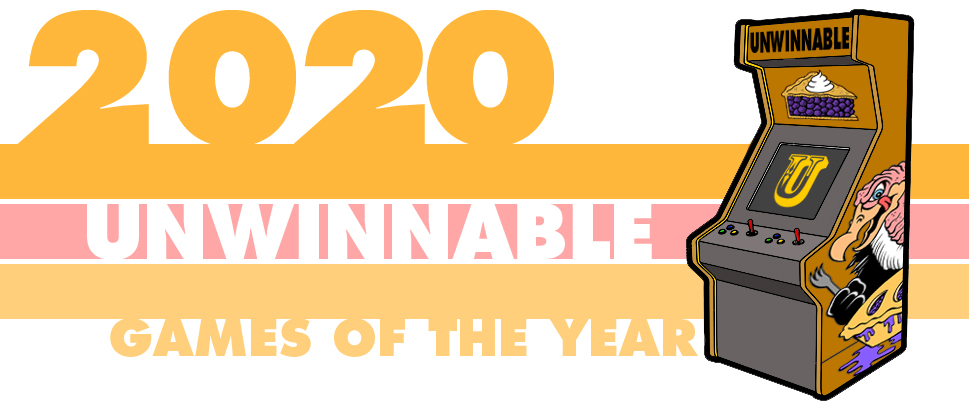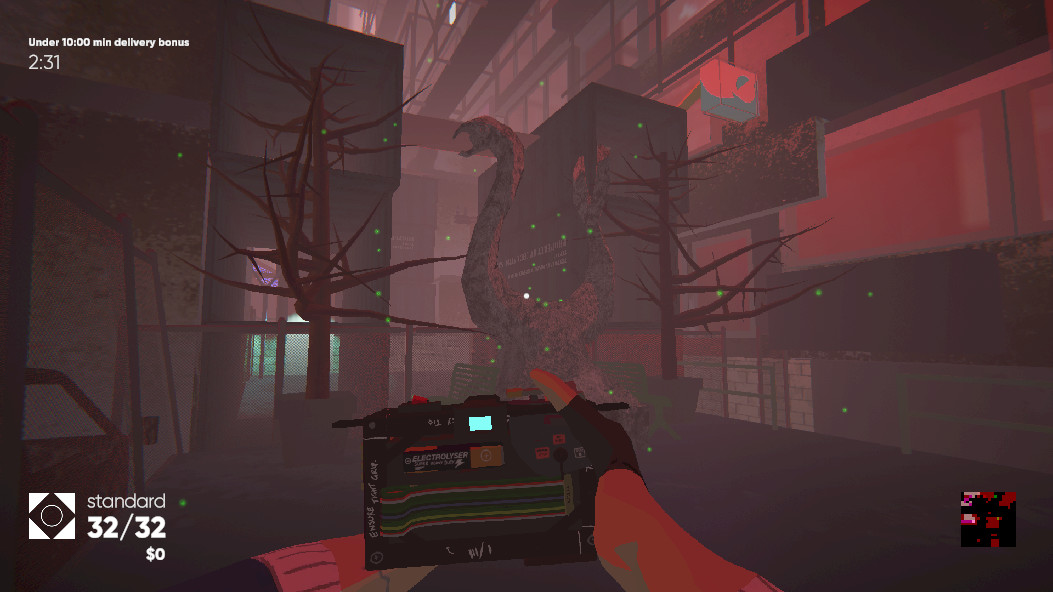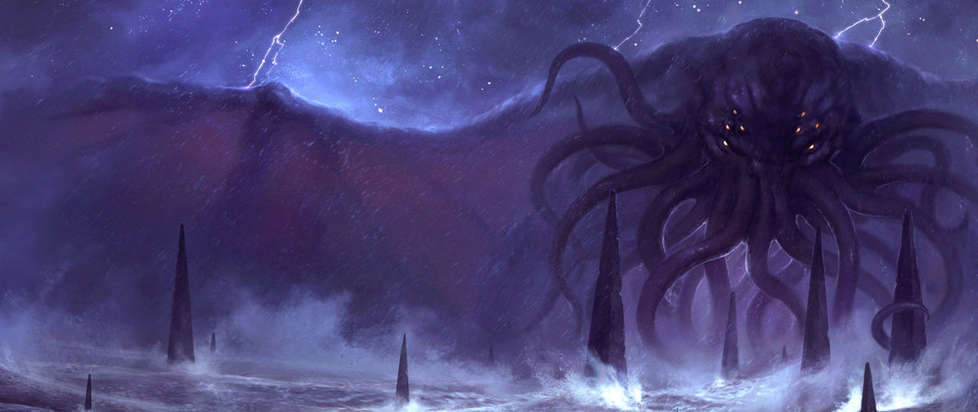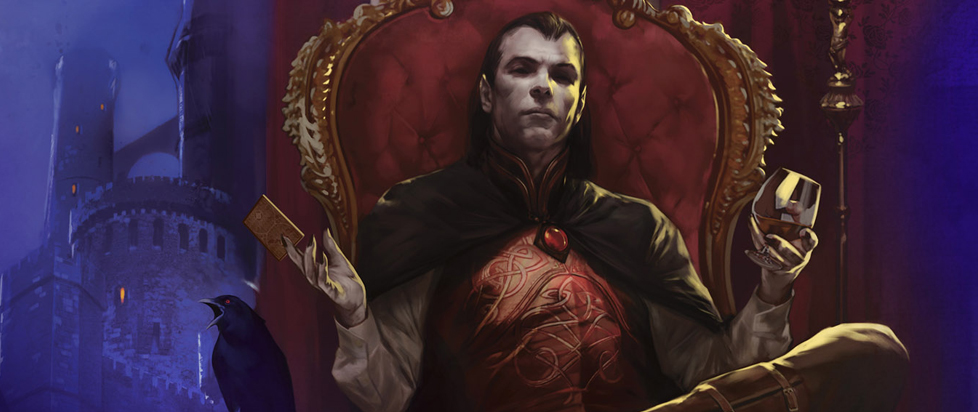
The Best Games of 2020
Be it a global pandemic consuming everyone’s lives (but the rich), to a slew of controversies and exploitative practices that continue to strike home in the games industry, this year has put on one hell of a spectacular shit show. But at the same time, games have proven to be the one salve we need to tide us over through 2020. When compiling this list, two games rapidly rose to the pantheon of Unwinnable’s favorites of the year – you’ll soon find out what they are, below – and it’s a bit of an understatement to simply state just how beloved they are.
And continuing from last year’s tradition, David Shimomura has once again voted for Tiny Islands, but twice this time only. I’m a bit disappointed. Support indie games, and eat the rich.
– Khee Hoon Chan, Curator

Best Demigod Mass Murder Investigation: Paradise Killer
Paradise Killer is a maximalist experience. The city pop tunes looping from towers of Perfect 24, a tropical island of demonic vaporwave statues large and small, provide the grooves behind the many sumptuous details of its island setting. There’s always something around the corner, through the gate, under the bridge, or just up the mountainside. Maybe it’s a scene from a back alley bar on Perfect 25, the next island world in line after Paradise Killer’s setting. Or maybe players will find a scrap of the past, describing how an ancient god deceived the main character and led to 3,000,000+ days of exile. There are also mechanics to uncover as well as story: turning the right corner might reveal a footbath that inexplicably grants a double jump or air dash. Paradise Killer gives players both the tools and the motivation to cover every inch of its depopulated, detailed neighborhoods.
It’s remarkable that Kaizen Game Works managed to pack so much density into a very open game. Paradise Killer makes few demands on the player. There are colorful characters to meet and a noir-inflected murder mystery that may or may not implicate them all, but its up to players to decide when they’ve heard and found enough. It’s possible to start the final trial at any time – the game won’t judge you for irresponsibly conducting a sham trial. It also won’t judge you for withholding evidence if you want to let a couple old friends slide.
That open approach can lead to some dodgy results. It’s quite possible to miss the bloody class politics that underpin the ruling elite’s attempts at perfection. Each of 25 attempts at that have been built on some heinous deeds. The island’s underclass consists of harvested souls who are enslaved and sacrificed to fuel each new revision. It’s up to the player to look into that history and its relevance to the investigation at hand, just as it’s up to the player to decide which evidence to reveal and which characters to implicate in Paradise Killer’s central mystery. That balance between style, lore and autonomy makes for an intoxicating blend. It’s just the right kind to enjoy at a closing bar at the end of a world, before another one starts up all over again.
– Don Everhart

Best Mecha Bullshit: 13 Sentinels: Aegis Rim
You thought you could escape the game? You pilot. You child. You fool! Did you really think you could escape this massive, perfect illusion that is just for us? Did you honestly expect to overcome technology with the miracles essential to mankind alone? Were you not infected with DD426? You should know your mech better than that. This is gravity. This is culture. Now we are the holographic terraforming astronauts. Natsuno is best girl. And I am naked in a cockpit. The idol girl is part of this now too. Okay? So all the kaiju are coming from automated, mechanized, mass producing factories. Okay! Our mechs, they are reality. Okay?? It was us, don’t you see. Mankind was the cancer all along.
I think this is a game. It’s definitely a game. Ohmygod it’s the game. Wait…which game?
– Autumn Wright

Best Open-World Stab-athon: Assassin’s Creed: Valhalla
When I started gaming back in 2010, one of the first games I got for my Xbox 360 was Assassin’s Creed 2. A decade with this franchise has seen us go from Renaissance-era Italy, to the inception of the United States, to Victorian London and now we’ve ended up in Viking era England. But that’s not the whole story of this game; no, where we’ve really gone is from Assassin’s Creed, to Far Cry 3, to The Witcher 3, to Breath of the Wild and back now to Assassin’s Creed. Because this isn’t just another historical-fiction romp where you get to pulverize Templars with axes. Valhalla is, truthfully, the culmination of a decade’s worth of open-world game design.
I know that Ghost of Tsushima was hailed as “the Assassin’s Creed we always asked for,” but Valhalla is the true measure of this series’ greatness, where the foundation it laid out all those years ago has advanced so much that you can at times hardly recognize what it started out as, all the while seeing unmistakable cues to other games of its ilk. The open vistas of Red Dead Redemption, the mythology of 2018’s God of War, the sense of discovery and puzzle solving from Zelda, the scenery, combat and complex storylines of The Witcher; it’s impossible to play this game without being stuck by something that reminds you of a title that came before. And it even brings back some of the best bits from previous Assassin’s Creed games, like sea shanties and Jesper Kyd returning as musical composer for the first time in nearly a decade.
You could be cynical and call Valhalla something that simply apes other successful games, and I’ll admit that it is indeed too big (it takes five hours just to finish the prologue). But when you look at it not just as one game, but a chimera of all the best bits of half a dozen open-world classics, it’s a damn impressive monstrosity, worthy of the same respect and grandeur as the world serpent itself.
– Evan Dennis

Best Tabletop Roleplaying Game: Call of Cthulhu
Call of Cthulhu is a tabletop roleplaying game. Is it cheating to include it in a list of the year’s best videogames? Probably. But COVID turned a lot of things virtual this year, and thus our TTRPG sessions were played on the screens of Roll20 and voice channels of Discord with keyboard and headset. This spring, our intrepid band of paranormal investigators left their Massachusetts homes and set off aboard the Orient Express for parts and mysteries unknown, encountering demons, Elder Gods and NPCs all speaking in the same New Jersey-inflected English as our eye-in-the-sky GM.
This fall, we upped the ante by digitally painting virtual miniatures of our characters on heroforge.com and swapping screenshots like trading cards, happy to fall into the age-old gaming trap of spending an inordinate amount of time in character customization. These electronic avatars let us suddenly see ourselves: the middle-aged library matron with a mean right hook, the affable Austrian psychologist with a penchant for the occult (especially possessed ceramic dolls); the Bostonian union organizer with a huge heart and accent to match; the doctor (of what, exactly, remains a slight mystery) ever-ready with a nice hard-boiled egg during a trying time; the taciturn professor with a nose for precious artifacts who insists on addressing everyone by their full Christian names; the multilingual priest who nonetheless has a hard time telling if it’s afternoon or evening without the aid of a wristwatch; and the dearly (very recently) departed hematopathology grad student who never met a blood sample she couldn’t save in a vial as a trophy (RIP). Through the crackle of my headset, their voices reached across the dark sea of 2020 like lighthouse beacons piercing the New England fog. Call of Cthulhu is a tabletop roleplaying game. It’s also my favorite videogame of the year.
– Sara Clemens

Best Relentless Evasion of Impending Annihilation: Spelunky 2
As punishing as the original Spelunky was, its sequel is more so. All too often, you’ll die with only a split-second’s warning, to plummeting moles, to errant poison bubbles, to spikes or spears or furious astral jellyfish. Sometimes it feels distinctly unfair, an engine of cruelty designed to entice you with the promise of a new run, only to snatch it away in a cacophony of unavoidable fate.
If you choose not to learn from your repeated demise, that’s where your dalliance will most likely end, in frustration and death. Sure, you may uncover a generous handful of secrets, dangling clues that thread through the rest of the adventure, but following those threads will always fall afoul of one truth: if there’s a chance of dying to any specific obstacle, sooner or later those percentages trend towards certain death.
But it’s in those fractions of percentages that Spelunky 2 begins to shine. It’s in the thousands of tiny decisions and split-second risk assessments that become second nature, the minuscule optimizations which do nothing but shave slight probabilities from your chances of being caught off guard. And over the course of a run, as you descend through lava caves and ruined temples and ancient civilizations full of increasingly merciless traps, those slivers of chance begin to add up.
Death is still inevitable, a matter of mounting probability. But maybe this time, you’re smart enough and quick enough and perceptive enough to stay one step ahead, for as long as it takes.
– Rob Haines

Best Low-Poly Magical Realist Theater: Kentucky Route Zero
There’s a road that only the locals know about and even then it gets away from them sometimes. An older man with enough time left for some last mistakes cruises along, and there’s nothing you can do to help but witness. The tired bloodhound has a couple of names, a TV repair person tags along to find the ghost of her cousin. It’s mostly ghosts to be honest, but also theater, road noise sculpted to a churchly ambiance, a series of scenes that seem undeniably true and also absurd in the way of those quick dreams when nodding off, and a song by Junebug that you help sing and seems like the most true thing ever expressed.
You don’t really play Kentucky Route Zero, you play your part in it, stuck onstage in “The Entertainment” and deep in a script you didn’t get to read. Choices are often made and there are reasons for the next costume change, but in the end the horses always have to be buried, a community must rebuild with dogged familiarity. The player conducts and directs, manages time in a place with a real disrespect for the rules of that fourth dimension, but still follows a line. There is work to be done and life to be lived, every act ends and every person dies. But we sing for them, and in doing so sing for ourselves, with voices slowly rising together, we are going that way.
– Levi Rubeck

Best Cyberpunk Game: Umurangi Generation
PC (as in “personal computer,” not “politically correct”) sleeper hit Umurangi Generation’s cel-shaded aesthetic commands attention with its mix of vibrant color palettes and hip lo-fi feel. What holds your attention though are its subversive mechanics that take a typical first-person shooter control scheme and give you something else to do with your hands other than shoot a gun. Instead, it puts players in the skates of a fleet-footed courier turned-pseudo photojournalist, tasked with capturing sights and scenes in compact urban environments while delivering packages on time.
What seems like a breezy adventure, snapping shots of friends and sunsets, soon turns into something much darker. Set in a “shitty future” version of the seaside city of Tauranga, New Zealand, it tells a tale of survival in the face of colonial oppression as viewed through the lens of Naphtali Faulkner, a solo developer from the Maori iwi (tribe) of Ng?i Te Rangi. Borrowing from the similarly stylized dystopias of Jet Set Radio and Mirror’s Edge while borrowing historical inspiration from the destroyed Chinese enclave Kowloon Walled City, its plot pits a youth movement against government oppression.
What follows in its brief four-hour playtime is an experience that is directly comparable to exactly nothing else, a socio-political sci-fi parkour-based photography simulator that is at once accessible and confrontational. While its minimalistic design appears to harken back to the Dreamcast era, its vision boldly blazes new territory for the medium, obliterating the expectations it sets up front before replacing them with a rare level of narrative resonance and relevance. Now when can we expect that Switch port?
– Ben Sailer

Best Initial Experience With a JRPG: Final Fantasy VII Remake
This is my first Final Fantasy; in a lot of respects this is also my first JRPG. I have no attachment or nostalgia for the original, so when I played this, it was fascinating to dive into a game where I only knew of things through cultural osmosis. I could not tell you if Final Fantasy VII Remake is a loving tribute to its predecessor, whether it stayed true to the things that made the original stand tall in people’s memory. But I can say that the game we have now in 2020 is a rich and involved experience, sometimes painfully quaint, that balances a distinct combat system with a complex and far-reaching world. There is a real sense of scale and scope to Final Fantasy VII Remake, a sense of a world lived in. That we are left at a cliffhanger is disappointing, but it means that we’ll get to see Final Fantasy VII another year as well.
– Amanda Hudgins

Best Virtual Companion in a Pandemic: Animal Crossing: New Horizons
The thing about Animal Crossing: New Horizons is that it’s a very boring game. You do chores. You wander around an island, digging up fossils, picking weeds, cleaning up your house and putting items away. You make pleasant small talk with your neighbors. There is no conflict. There’s no thrill of self-discovery and no hero’s journey. Nothing particularly bad will happen, except running into wasps and spiders and scorpions, which will jolt you awake in front of your house with no memory of how you got there. Playing New Horizons is fundamentally a waste of time where there are no stakes, because nothing can hurt you.
But in real life, there’s so much that can. I write this from a bed where I’ve spent 20 hours a day for the past five days, because I got COVID from the hospital where I work. I’ve spent more time outside in New Horizons this year than I’ve spent outside, in real life, over the past five years, and I wish that was only an exaggeration. Sometimes I would go to the rock on the western edge of my island and watch the sun set into the pink sea, staring at the screen long after any real sunset, outside my window, had faded.
When I couldn’t go out all summer with COVID cases spiking, I let my avatar backflip off rocks in New Horizons and I swear, sometimes I can remember how it feels to have my real body submerged in water. Weightless. Floating. Staring up at the sky. In real life, too, none of my neighbors have ever given me a golden kettle (thanks for that, Marshal, it’s my fourth), or asked if I prefer tea or coffee, or my favorite type of music. I live in an apartment building isolated from the people around me, as I avoid sharing elevators with strangers, simply because it’s not safe this year.
But just yesterday, Lolly told me she saved a spot on the bench for me, right next to her. And every day Nibbles tells me that “One…you’re fab. Two…I mean that. Three…there is no three!” and I felt a sad surge of emotions in my sad little heart. Sometimes when you’re having a bad day or year, the thing that pushes you over the edge and makes you cry is when someone tells you: “I care about you, bonbon.”
That’s what it’s like playing New Horizons.
– Ailuridae

Best Game Ever, In The Year of Our Lord 2020: Hades
I have a degree in Classics. I wound up specializing in archaeology, but like so many other people, I was drawn to the discipline by the myths about the gods of ancient Greece. When I started my studies, I was under the impression that they belonged to a consistent canon.
I was completely mistaken. We don’t know how many city states there were in ancient Greece, but the best estimate, based on the evidence at our disposal, is over a thousand. This means that hundreds of different versions were being told at any particular point in time. What stands out the most about Hades is how it deals with all of these myths. I mean, of course, that it does what people did every single day in the past: Hades makes them relevant in the present through a process of reinterpretation. You can see this in the mechanics, aesthetics and story.
The gods of ancient Greece were known for their martial prowess. And you probably don’t think of her as much of a warrior, but even Aphrodite took part in the Trojan War. The depiction of their martial prowess only appears in writing, though. You have to use your imagination if you really want to follow the fighting. The action is always described in the third person. When it comes to Hades, you actually get to participate in their pugilism. You’re in control. The action plays out in the first person. Transferring them to a different medium, Hades’ mechanics bring the gods of ancient Greece into modernity.
I had to learn a thing or two about aesthetics in my studies. What you need to know is that art was representational as opposed to abstract in ancient Greece. Technology wasn’t up to the task at the time, but things like statues and paintings were supposed to reflect some sort of reality. The point was to produce a depiction of something as it was perceived by the senses. The aesthetics in Hades, on the other hand, are more about communicating a strong sense of character than reproducing reality. The art is definitely abstract. Similar to the mechanics, the aesthetics bring the past into the present.
We describe them in terms of their spheres of influence, but the gods of ancient Greece weren’t personifications of concepts like death and destruction. Ares was just a being of some kind that really liked killing things. The story picks up on this and runs with it. But the problems of people in the past weren’t the same as what worries us in the present, though. The world was a dangerous place. The myths of ancient Greece describe all sorts of scary stuff, but the Hades’ tale turns around a teenager trying to assert himself. These are pretty contemporary concerns.
There was never a consistent canon concerning the myths about the gods of ancient Greece. These were forgotten after a while, but when rediscovered, there were only a few versions of them, so they seemed a lot more systematized. The reality is that people in the past were constantly reinterpreting these myths to make them relevant in the present. What stands out to me about Hades would have to be how it allows this legacy to continue rather than getting bogged down in canonical consistency. The game brings these myths into modernity. This helps to make Hades the best game of the year.
– Justin Reeve




